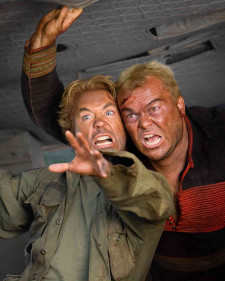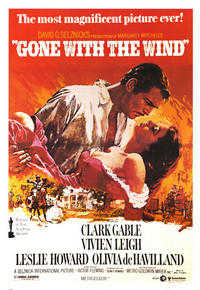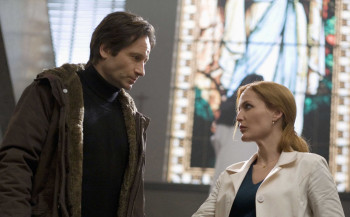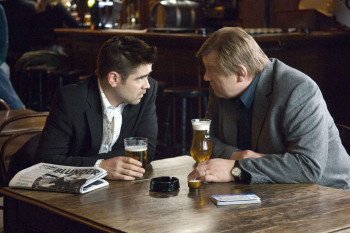Continuing on
 The future of Ra Ra Riot sounds as if it’s in doubt. The New York group has an album that’s being mixed and mastered, but it doesn’t have a label. The band is hoping for a May release, but that could be pushed to September. It’s now considering its options – such as self-releasing a digital version of the album – if it doesn’t find a corporate home soon. It wants the album out there, but it wants a label push, too.
The future of Ra Ra Riot sounds as if it’s in doubt. The New York group has an album that’s being mixed and mastered, but it doesn’t have a label. The band is hoping for a May release, but that could be pushed to September. It’s now considering its options – such as self-releasing a digital version of the album – if it doesn’t find a corporate home soon. It wants the album out there, but it wants a label push, too.

 As dismissive as many people are when it comes to blogs, what’s often neglected is that they can sometimes represent genuine grassroots movements. And Minneapolis’
As dismissive as many people are when it comes to blogs, what’s often neglected is that they can sometimes represent genuine grassroots movements. And Minneapolis’  If we accept that there is some cachet associated with being THE NUMBER-ONE MOVIE IN THE COUNTRY!, why would a studio release a movie on Wednesday in August?
If we accept that there is some cachet associated with being THE NUMBER-ONE MOVIE IN THE COUNTRY!, why would a studio release a movie on Wednesday in August? When Batman ($445 million through August 11) knocks Star Wars ($461 million) off as the second-highest-grossing movie in
When Batman ($445 million through August 11) knocks Star Wars ($461 million) off as the second-highest-grossing movie in  I start an essay for most every movie I see. Whether I actually finish the essay – or even make any headway on a thesis – is another matter entirely. Today I’ll be the old man who runs out of candy at Halloween and starts handing out worthless crap that’s lying around the house.
I start an essay for most every movie I see. Whether I actually finish the essay – or even make any headway on a thesis – is another matter entirely. Today I’ll be the old man who runs out of candy at Halloween and starts handing out worthless crap that’s lying around the house. Iron Man started the summer on May 2, and The Dark Knight signified the end with its release on July 18. Based on what we’ve seen in recent weeks – and the uninspiring upcoming release calendar in terms of potential blockbusters – that’s how Hollywood is marking the season these days. The major new releases the past two weekends have ranged from the expired (The X-Files: I Want to Believe) to the tired (The Mummy: Tomb of the Dragon Emperor), with the requisite Will Ferrell comedy in Step Brothers.
Iron Man started the summer on May 2, and The Dark Knight signified the end with its release on July 18. Based on what we’ve seen in recent weeks – and the uninspiring upcoming release calendar in terms of potential blockbusters – that’s how Hollywood is marking the season these days. The major new releases the past two weekends have ranged from the expired (The X-Files: I Want to Believe) to the tired (The Mummy: Tomb of the Dragon Emperor), with the requisite Will Ferrell comedy in Step Brothers. After two weekends, the only question remaining about The Dark Knight’s box-office prowess is whether it will become the all-time domestic champion, toppling Titanic. It’s unlikely, but Christopher Nolan’s second Batman movie is a very good bet to unseat Star Wars from second place, as long as we don’t consider pesky factors such as inflation.
After two weekends, the only question remaining about The Dark Knight’s box-office prowess is whether it will become the all-time domestic champion, toppling Titanic. It’s unlikely, but Christopher Nolan’s second Batman movie is a very good bet to unseat Star Wars from second place, as long as we don’t consider pesky factors such as inflation. Early in In Bruges, the hit man Ken (Brendan Gleeson) is counting out coins, and he ends up 10 cents short of the admission price for a historic attraction. He pleads with the cashier to let him in, but the man insists that it costs five euros to get in. Exasperated, Ken pulls out a 50-euro bill. It’s a tantalizing bit of character color. But when that detail becomes important late in the movie, the life gets sucks out of it; it becomes a hollow contrivance instead of an ambiguous hint of a man.
Early in In Bruges, the hit man Ken (Brendan Gleeson) is counting out coins, and he ends up 10 cents short of the admission price for a historic attraction. He pleads with the cashier to let him in, but the man insists that it costs five euros to get in. Exasperated, Ken pulls out a 50-euro bill. It’s a tantalizing bit of character color. But when that detail becomes important late in the movie, the life gets sucks out of it; it becomes a hollow contrivance instead of an ambiguous hint of a man.